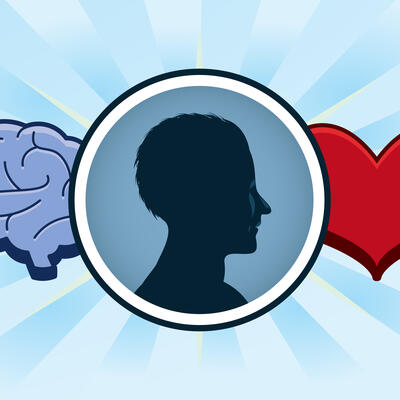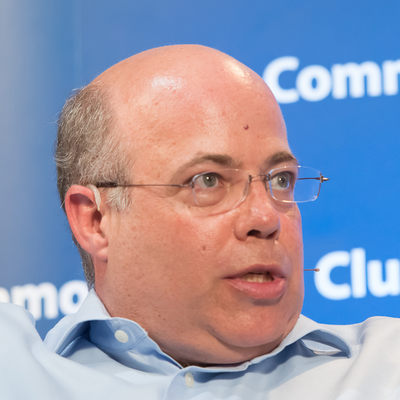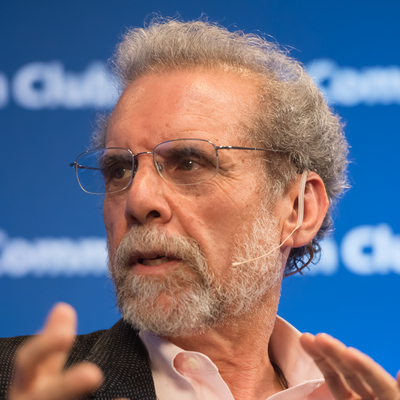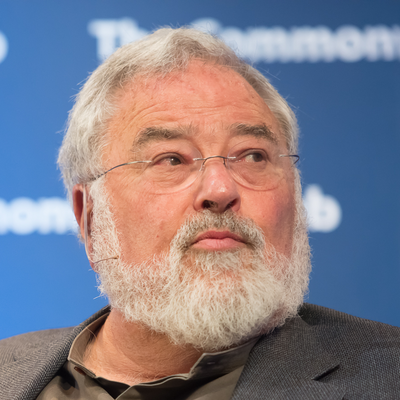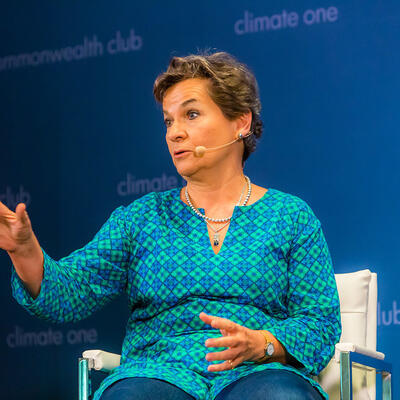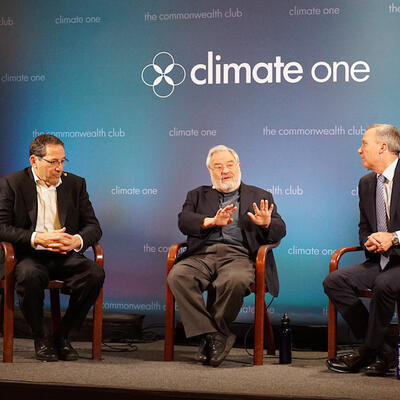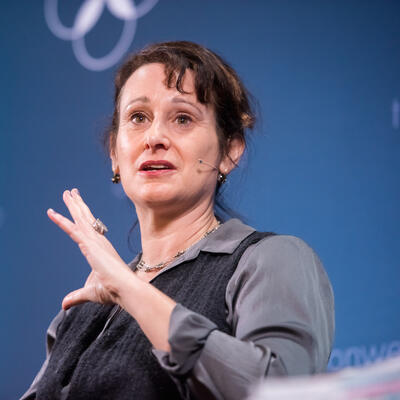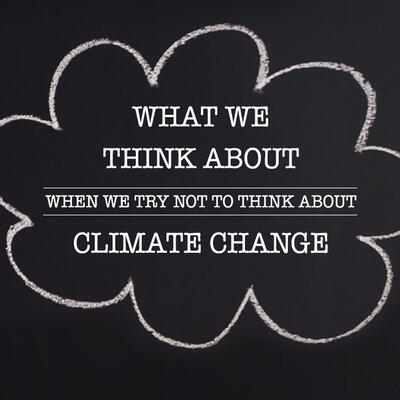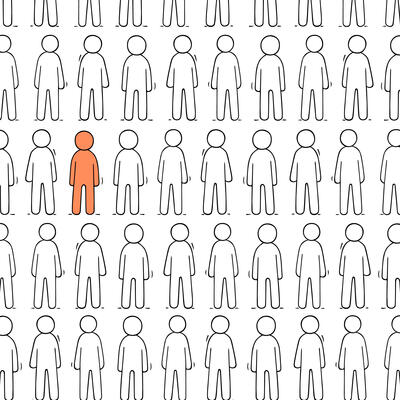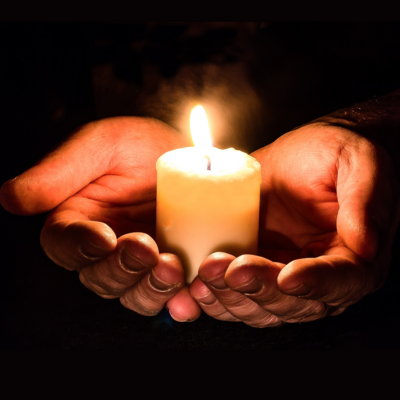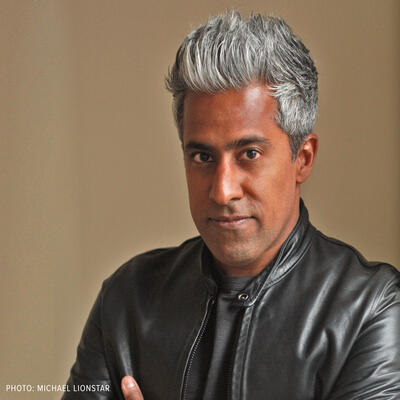Greg Dalton: Today on Climate One, our topic is how human hearts and minds grapple with the concepts and impacts of climate disruption. Evidence is everywhere of how burning fossil fuels is destabilizing our climate, rising temperatures, rising seas, increased droughts and floods. Even the polar vortex is a kind of freak weather scientists say we can expect to see in the near future. Mountains of data collected over centuries clearly indicate humans are engaging in a risky experiment with our life support system. Despite flashing warning signs, many individuals and organizations are going about business as usual or making modest behavioral changes. Some people in companies see huge business opportunities in the move away from fossil fuels and low carbon technologies are growing quickly. A lot of great progress is being made toward a clean energy future. Over the next hour, we will discuss how human beings process the threats and the opportunities of this transition to a new fuel for the global economy. Joining our live audience at the Commonwealth Club in San Francisco, we're pleased to have with us three authors who have written many books on a variety of topics. Today we're applying their work to the realm of individuals and the earth's climate.
Joshua Freedman is CEO of Six Seconds, author of
Inside Change: Transforming Your Organization with Emotional Intelligence.
Daniel Goleman is author of
Ecological Intelligence: How Knowing the Hidden Impacts of What We Buy Can Change Everything. We're also joined by –
Daniel Goleman also popularized emotional intelligence, which is also known as EQ. And
George Lakoff is professor of linguistics at UC Berkeley and author of many books, including
The Political Mind: A Cognitive Scientist's Guide to Your Brain and Its Politics. Please welcome them to Climate One.
[Applause]
Greg Dalton: Gentlemen, welcome. Dan Goleman, let's begin with you. There's lots of facts and information out there about our climate is changing and yet people aren't acting as though the house is on fire. Why?
Daniel Goleman: I think it comes down to a designflaw in the human brain. The brain was designed in evolution as a tool for survival, but it was that evolutionary pressure occurred in earlier ages over hundreds of thousands or maybe a million years and we're now attuned to recognize the rustle in the bushes as the danger, but actually the global changes that have come with the advent of the Anthropocene Age created real dilemma. The Anthropocene Age, if you don't know, is the current geological era where one species, us, is engaged in activities, daily activities that are degrading the global system to support life on the planet. The poster child is climate, but there are many, many others. And the problem is that we don't perceive nor are we alarmed by these changes. We don't perceive them because they're too macro and too micro and our neural system for danger and threat is attuned to, "Honey, we've got to talk," that kind of thing, rather than climate change or global warming. And so we're in this dilemma where we can show people, "Well, you know, your carbon footprint is this," but it doesn't really register in the same way as there's a tiger around the block or the threats that we're attuned to. So I think that facts alone aren't enough, that we need to find a more powerful way of framing them and of speaking to people in a way which will activate the right set of emotions and get us moving.
Greg Dalton: And we'll get later to extreme weather and to direct experience. But first I want to ask, Josh Freedman, you've done a lot of work with organizations. Are organizations responding to this in a way that maybe the individual level is not?
Greg Dalton: No?
Joshua Freedman: I mean, unfortunately, I think there's a lot of talk at an organizational level about sustainability, but I think when we come down to really day-to-day operations in organizations, the same things that Dan is talking about is going on, that our focus is on a lot short-term urgent stuff and not on the long-term really important stuff. And I think that there's a signal to noise ratio issue. We've got a lot of noise and our brains don't cope so well with that noise. Dan's new book, Focus, talks about this. We've got a lot of noise and a lot of pressures that are making it hard for us to really attend to some of these bigger issues and whether that's in quarterly profits or whether it's, you know, my kid came home from school and is unhappy or whatever, those things feel very urgent to us, organizationally and personally. And in the midst of that kind of chaos, isolation, increasing stress, I think it's very difficult for individuals and probably even more difficult for organizations to pay attention.
Greg Dalton: George Lakoff, why aren't we responding to all the information around us? Extreme weather, droughts, floods that scientists are connecting increasingly to climate change, why aren't we responding?
George Lakoff: Well, first of all, these two answers are true and there's two more. First, there's the distinction between direct and systemic causation. Direct causation is, I pick up a glass of water, I take a drink, it's direct. Every language in the world has a means in its grammar to express direct causation, but the environment is a matter of systemic causation. It's a system. No language in the world has in its grammar the means to express systemic causation because we don't learn it automatically, unconsciously. Almost all thought, 98% is unconscious; we don't learn it. And let me give you an example.
You have snow coming down more than ever, let's say, on the East Coast, then people will say, "Well, it's snowing, what do you mean global warming?" Or there's freezing in Georgia or Oklahoma, "What do you mean global warming?" And what happens is systemic causation has four parts. There are networks of causes, that is, you get evaporation over the Pacific Ocean that has lots more energy into it with global warming because the molecules are going faster. You get winds blowing over the poles. You have, over the poles, more energy because there's – global warming is warming that. That is expanding. That's pushing the winds from the west down into Georgia, Oklahoma, whatever, making them cold. That is a kind of systemic causation which can be probabilistic and can have feedback loops. People don't know that. There's nobody out there saying it, including climate scientists. So, for example, I had a conference at the Aspen Institute where a great climate scientist was asked in 2005 was Hurricane Katrina caused by global warming. And he said, "Oh, no, no, we can't say anything is directly caused or any hurricane is directly caused and so on." And it was systemically caused. You had the Gulf heating 3 degrees, which is huge, much more moisture going into the air, highly charged, winds blowing toward New Orleans. It was probabilistically high that this was going to happen. This is systemic causation, not direct causation, and scientists are not trained to talk in terms of systemic causation. So that's one little piece. We don't have that.
But then you have different moral systems. This is the greatest moral crisis we have ever been in. It is the moral issue of our times and it’s seen just as an environmental issue. It's not just an environmental issue, it's a moral issue for everyone on every issue, and that is sometimes perceived if you have a moral system that is based empathy, on caring about other people other beings and so on. If you have a moral system that's based on, let's call it, liberty, personal responsibility alone where you're not responsible for anybody else and nobody else is responsible for you, which is often true in certain political contexts, then what you're going to get is a differentiation. Some people will empathize and others won't, but even if they empathize, the issue of systemic causation, fear, as you point out, all of the immediate issues that you point out still come in. So we are not biologically set up in our brains to understand global warming and to react appropriately to it, just as you say.
Greg Dalton: Dan Goleman, can you empathize with a fossil fuel company executive?
Daniel Goleman: I think probably over a beer. But when you look at what the company is doing, no, I can't, but the executive in the company is another issue. What I'd like to point to though is a fifth factor, George, plays off what you were saying, which is systems blindness. I was talking to John Sturman, who is the head of systems dynamic unit at MIT. He said this is the biggest problem we confront today, because human systems of energy, of transportation, of building and construction, of industry and commerce all embed within them our own mass slow suicide. This is the moral dilemma you talk about. And they do it in ways that we're impervious to.
The making of this chair, of this jacket, of that light and the taxi that drove me over here created a huge array of ecological consequences for the environment that feed into – when you take this to scale, feed into the slow death of the global system supporting life. And we don't have even the facts about that. When you say, for example, "Let's unpack what creates the higher energy behind the hurricanes," yes, but let's go beyond that. Let's talk about everything. Let's have radical transparency about the ecological consequences of everything we do and everything we buy, okay, and let’s let us all know and let's reduce the cognitive cost of getting that, the mental effort you have to make, to zero so that if you go to the store and you see the price of something next to it is the ecological consequence relative to the other competitive things, brands you might because what that does is create a market force because people have a way to make a distinction they didn't have before.
Joshua Freedman: There's a problem with that though which is they have to know systemic causation and they only know direct causation because that's what you experienced as a child and that's what shows up in every language in the world and in every conceptual system. You have to learn systemic causation and it doesn't come automatically. It's not unconscious.
Daniel Goleman: That's why I think you've got the answer, Josh. It's education. I am a big advocate of bringing this into schools, teaching systems thinking, teaching life cycle assessment thinking, so there could be a math problem. The smog level today was X, please compute how many DALYs, disability-adjusted life years, that causes. In other words, how many people will use a fraction of the year of life to see a respiratory problem because of today's smog?
Well, in order to solve that, you have to understand systemically the particulates that are going into lungs, to the chemistry of it, the biology of it, the epidemiology of it. And I think if kids had these mental models growing up, they would make very different decisions than we who are system blind today.
George Lakoff: And also I think we're missing a key piece there which is we're talking about a human problem. let's go back to the theoretical empathy with the oil executive or let's talk about this kid in the classroom, neither of those are – if we take those out of this sort of human interaction and we lose the actual emotional component of that empathy and that relationship, I think we're sunk. So this is a person that we're talking to who's doing things for reasons that are mostly emotional, and we need to understand and connect with those. And whether we're talking about a kid or the oil executive, we absolutely can empathize with either of them because they're dealing with the same kind of complicated challenges that we're dealing with, and unless we can connect at that human level, the sort of big ideas are going to go nowhere.
Greg Dalton: I want to bring in a voice. Paul Hawken is a person many of you know an author of lots of books. He was here recently and talked about some – the attitude of climate happening to us or for us. Let's listen to a brief clip from Paul Hawken.
Paul Hawken [on tape]: Right now, the attitude is that climate change is happening to us, and if you think that's happening to us, then you're going to look for villains and demons. Actually climate change is happening for us and for us means that it just opens up an extraordinary amount of innovation, possibility.
Greg Dalton: Climate change is happening for us. It's an opportun – let's stretch your optimism here and see if you can say, "This is a really big opportunity, it's not a problem, it's not happening to us, it's happening for us and it opens up innovation."
Daniel Goleman.
Daniel Goleman: And I think this has to do with empathy because if we demonize the bad executives of the oil company, we don't have a chance to talk to them or find out what they care about. We don't have a chance to see if we can do a little Aikido here, because, for example, I was shocked and pleased – I was at a closed-door forum at Davos with the heads of sustainability for many major corporations around the world, and they're just talking among themselves and they're saying, "You know, we're doing all these great things B2B and our customers don't care."
Greg Dalton: B2B being business-to-business.
Daniel Goleman: Business-to-business, yeah. And, you know, there are things like Unilever has now decided that by 2015 it will source its raw materials from a half million more small farmers in the third world. The World Bank says the best way to develop economies and the health and education of those communities is by helping them in that way, and so Unilever is basing its business strategy on something that does that. Well, we need more of that kind of thinking in companies. So we were talking earlier, George and I, about divesting from oils, and I – that's the stick, but let's apply a carrot, too, and I think the carrot begins with empathy. I think it says, "Okay, you're in this business. Where is energy going to be in 50 years? You guys have got to get behind green energy because today's children, once we teach them these mental models, aren't going to buy your gas anymore. They're going to be getting cars or they're going to be walking or they're going to be doing bikes, and if you're going to think of your long-term strategy, you've got to get into that business, too." In other words, can we shift people by understanding the commonality of our shared human plight?
George Lakoff: Well, let me take the problem with that and also the opportunity because I think – I think you're right but just a little bit more to say. First of all, when this first sort of came up 40 years ago, people talked about our children and grandchildren. They're in our classrooms now. They're my students.
Greg Dalton: They're sitting here.
George Lakoff: And they're sitting here, in all our lives, in your lives right now, if you're going to be living in 40 years, 50 years, 60 years from now, that's going to affect everything in your life, every part of it.
Greg Dalton: It's already affecting a lot of people on earth today. Droughts and food prices are going up. It's not about the future, it's now.
George Lakoff: But it's now, that's the first thing. Secondly, I had the opportunity last week to hear Thomas Piketty over at Berkeley to go through the –
Greg Dalton: He's the author of –
George Lakoff: Capitalism in the 21st Century. What he's found has tremendously changed economics. A great piece by Paul Krugman in The New York Review of Books goes through it, and what he found was that if you look at wealth, not income, prior to 1913, reinvestment wealth was all over the world and much greater than GDP, than wealth coming out of production and wages and so on. That changed with World War I and the Depression and World War II where a lot of wealth was wiped out, and all economic theories were developed in the years between 1913 and 1980. And what happened then was during those years the GDP and production wealth was greater than reinvestment wealth. That changed in 1980 with Reagan. In 1980 with Reagan, 10% of Americans owned 30% of the properties. Now they own 52% of the wealth of the country. It's gone up exponentially. There's an exponential factor in that and it's reversed, GDP is down.
Now what is the possibility there? What that says is the following: If you can, on moral grounds, let's say I just wrote the first draft of the faculty position for U.C. divesting from firms that do work in gas, oil and fossil fuels, what would that do? If you get other institutions, foundations, pension funds, et cetera, who have moral reasons to divest and put their money elsewhere, reinvest, don't take it out of the market, reinvest in other things including better forms of clean energy, then what will happen is that the prices of the stocks will go down for those energy companies. Usually when stock prices go down, people wait until they can go down, then they're going to go up again, people invest in it and they wait to make profit. But this is different because when they go down that way, they stay down, and then if people know they're going to stay down, they're not going to invest and they'll go down further. That is, you have an opportunity to shift investment away in a way that is exponentially – has an exponential feedback loop. That's one of the reasons, I think, that we need to start having public institutions, all sorts of other foundations and so on starting to divest from those industries.
Greg Dalton: George Lakoff is a professor of linguistics at UC Berkeley. Our other guests today at Climate One are
Daniel Goleman, author of
Ecological Intelligence, and
Joshua Freedman, author of
Inside Change. I'm Greg Dalton.
George Lakoff, on that point, Christine Todd Whitman, former governor of New Jersey, was here at Climate One a few weeks ago and she said, "Don't make climate a moral issue because you don't compromise on morality,” and that it makes it very difficult for people to compromise and people harden their standpoints, and that is a bad way to go.
George Lakoff: This is a moral issue, period, and moral issues are where people live. Your morality is what defines who you are as a human being and it's who you are emotionally and morally as a human being that matters in your life to what you do every day. It must be a moral issue. This isn't a matter of compromise because we've been compromising too long. We have like 35 years to turn this around, period. That's not long. We can’t compromise.
Greg Dalton: Josh Freedman.
Joshua Freedman: And yet when we move into this kind of oppositional way of talking about anything and we start saying, "Okay, they're good, and they're bad," what happens is we're actually fueling this threat system that I propose is what's in the way of us actually solving these problems. The more we move into "this is dangerous, this is destructive, we have 35 years, and if you're not with it, you're a bad person," we're kind of entering, we're pushing away from dialogue and into strife and what our brains do, when we're in that strife, is we narrow our attention, we focus on short-term survival, we focus on narrower self-interest and we don't actually move into change.
George Lakoff: That's why you make you make it positive morally. You make it morally positive and what's interesting about this –
Joshua Freedman: But then there's a bad. Like if we say there's good, then automatically, if you don’t agree, then you're bad.
George Lakoff: Let other people decide that. But the other point is most people have more than one moral system. We've been studying moral systems and conservatives and progressives have very different moral systems, but there are a lot of people who are "moderates." There's no moral system of the moderate that's in between, but people who are partly one and partly the other.
Joshua Freedman: Maybe I could get in a tiny story. We're driving in Malaysia, my kids and I are about 8 and 10 years old, and there's endless palm plantation.
And my kids are saying, "What are these – what are the Malaysians doing? How can they let this happen?" And my answer is, A, we did the same thing, B, we're buying the palm oil, let's not vilify people, lets understand that, as you said, there's a complex causation and we're part of the story.
George Lakoff: And the question is how do we get out of it? And we get out of it by reinvesting, not just saying "We're bad, you're going to do that." You divest from this and you reinvest elsewhere. You don't just take money out of the market, you put it in better places. You get a clean investment portfolio instead of a dirty investment portfolio.
Greg Dalton: Dan Goleman, yeah, go take it a step further.
Daniel Goleman: Yeah. Because this – just for the palm oil example. In fact, there's clean palm oil and there's dirty palm oil. Dirty palm oil is more recently clear cut jungle in order to make a palm plantation.
Daniel Goleman: Yes. Yes. It's all jungle originally. Even so, these are important distinctions because if we can make them immediately apparent to people across the board - and I think we can start with the carbon industry, but we can go to every industry - that people can start to make decisions to buy the better alternative which does at the individual level what you're talking about doing at the institutional level, we can all divest and we can all invest in something that's a bit greener which creates a market force to create more new, greener technologies like, for, example Styrofoam, like other plastics – I see the head of the Plastic Pollution Coalition is here. Plastics are horrible because petroleum and oil don't mix and they never die. And Styrofoam is in the same category. So two students at Rensselaer invented a Styrofoam alternative which is made out of mushrooms, mushroom roots and corn – rice husks.
This is the way we need to rethink everything because all of the platforms we use for industry and commerce today were invented before we even knew what the consequences were. The palm oil industry started before we thought, "Oh, man, we're going to need biodiversity and we need the jungles to support it." Another problem, I just want to make it a little more complex here, is that the future is already here, but it's not evenly distributed. The poor parts of the world are experiencing the pain more than the wealthy, we can buffer ourselves with our wealth. And just to complicate it a little further, Dacher Keltner at Berkeley – I don't know if you know Dacher – has discovered that there is an asymmetry in empathy between people of power and wealth and those of less power and wealth, which means, if you take that to scale, that the first world doesn't get what's going on in the third world, let alone the fourth. So we can blithely blunder along thinking that this style of life is going to go on forever even though our children and grandchildren are aware that it's not. And I think we need to shift, as Josh said, from the negative, from scaring people about this to encouraging them to do something about it. I told you about the footprint and the handprint. The footprint, your carbon footprint or ecological footprint is the number of all the ways in which you and I and the rest of us are damaging the planet by everything we buy and do, and it's a negative thing and it arouses negative emotional systems when you think about it. I have a friend who teaches life cycle assessment at the Harvard School of Public Health. He has his students figure their total footprint, they come back they're completely depressed. They say, "The planet would be better off without me, wouldn't it?" He says that's the wrong conclusion. What you want to do is take that as baseline then talk about your handprint.
Your handprint is all the things you do to lower your footprint and the goal is to make your handprint bigger than your footprint. Then you're going to have positive in the world and that it activates positive neural systems and keeps people motivated, keeps them moving. I think we have to think along those lines.
Greg Dalton: George Lakoff, tell us a little bit about the positive, negative circuits in the brain, how this is really embedded in our brain, the dopamine circuit and the norepinephrine circuits.
George Lakoff: Sure. In our brains, we have what is called a reward system for – and that's where morality comes from. Morality comes from the fact that if you do certain things, if you’re a child, you eat pure food, you feel good; you eat rotten food, you feel bad. That's why morality is purity and immorality is rottenness. Something's rotten in the State of Denmark. That's a rotten thing to do, right. There are dozens of these basic metaphors that structure our brains and give us moral systems of this sort and they are crucial to every part of the way we understand our goals. For example, people think that the moral – the reasoning system that was thought about and theorized in 1650 is still true. That is, our universities are still teaching 1650 views of reason that are false, one of which says that reason goes against emotion. We know the opposite is true. If you have a stroke or a brain injury that keeps you from feeling emotion, then like and not like mean nothing to you, you can't set a goal, you do random things and screw up your life. You must have emotion to be rational, but you don't just think in terms of logic. If you just tell people the facts and expect them to reason to the right conclusion, that's crazy because it's not merely the emotional part of the brain that's there, it's the metaphorical part and the part that frames issues that are there in your brain deeply and unconsciously every minute of every day.
You can only understand what your brain allows you to understand. All thought is physical. You can only understand what your brain permits. Now this has amazing effects on the media because it's not just individual decisions at the individual knowledge level. Our media are not telling us all the things that we need to know from a moral perspective. They're not there and they're not there for a reason, you know, all the reasons that we talked about because we don't have it in our ordinary everyday lives to understand systemic thinking and they're not there. But not only that, we have people who have a system of communication that makes sure that the media say the opposite, that is, this is part of – you know, you've heard of the Koch brothers, but they're just the tip of the iceberg. There's a huge system of folks out there who are saying, "No, we need to expand oil. We need to have more oil. We need to have oil indefinitely."
Joshua Freedman: Maybe we could come back to the emotional intelligence topic for a moment. So I think we're all in agreement here that reason, in the kind of conventional sense, the 1650s sense, isn't what really drives our behavior, that we need to somehow bring emotion and cognition together. And there's a lot of great neuroscientists that are talking about this now and looking at how we actually make decisions and great studies in brain imaging help us to understand that, but I think if we take that to this topic of climate change and we're saying, okay, there's these abstract topics climate change and then there are these personal topics of climate change. So as we think about us sitting in the room and us listening and us watching and go why will we change or not change and what is the emotional condition that has to occur in order for us, you know, not waiting for somebody to change the media or not waiting for somebody to change this company or this government, but what does it take for us to change.
You know, I can certainly speak for myself to say I know there are things I could be doing better in terms of my relationship with the environment and I would guess that everybody in this room can think of ways that they could make those changes. So I'd like to take this to a more personal level as we think about the role of emotion in our decision making, how do we get better, not waiting for anybody else?
George Lakoff: And this is what Piketty points out won't work for the following reason, because of the shift, starting in 1980, between reinvestment wealth and wealth coming out of regular jobs and GDP, that reinvestment wealth gets greater and greater and tends to work against all of those personal decisions. It's not just that we –
Daniel Goleman: No, I disagree. I think you're naive about the way business works. I've looked into this, George, listen. [Crosstalk] I think if Josh's plan would work, that is if we were to take individual responsibility and start making individual decisions even though wealth is becoming greater and greater just proportionally among a small elite, the key point is this, the way our products are made, the way industry and commerce operates is very sensitive to customers' likes and dislikes, and what you want to do is shift market share away enough from someone who's in the bad category towards someone who's good so that it will scare the hell out of a brand manager.
George Lakoff: That's what I was suggesting, but you're leaving language out of this and you can't leave language out of this. Language is what people hear in the media all the time on all those advertisements by the oil companies constantly.
And what does that mean? Charles Fillmore, who unfortunately died recently, who was one of our greatest linguists ever, discovered that we think in terms of structures called frames, and that every word and every language is defined in terms of that kind of mental structure and that what happens is that when you hear a certain kind of language it evokes a structure which in turn evokes a certain moral view of the world and a certain way of understanding the world and that gets in the way of personal decisions and politics. One of the disservices that was done by Al Gore's wonderful movie, at the end, he just listed the individual things you can do. You would have expected Al Gore to talk about politics, to talk about the fact that you need political change as well as personal change in order to pull this off.
Joshua Freedman: So you're saying we can't really do anything then because we're stuck with this language, we're stuck with this economic system, how's it going to change?
Greg Dalton: What could an individual do?
Daniel Goleman: George, oftentimes individuals think that their actions don't matter, "Oh, my personal carbon, it matters to identity and a lot of people think identity is the key because this is sort of who I am even if the carbon I save is meaningless when China's pumping out coal and there's hundreds of millions of people moving up into the middle class. How does my carbon matter?”
George Lakoff: It matters if you can get divestment going on the basis of your moral views and make that political and understand the systemic as well. That is you have to do it both at the educational level, at the emotional level, as you're pointing out, at the unconscious automatic level, but you have to do it at a political level as well.
You can't ignore the politics and you can't ignore the fact that the wealthy are – see, why does it matter if the wealthy get a lot wealthier? Why does it matter? Because they command scarce resources and control media.
Greg Dalton: We're talking about climate change and the human brain and the human heart at Climate One. I'm Greg Dalton. And our guests are Josh Freedman, author of
Inside Change; Dan Goleman, author of
Ecological Intelligence; and
George Lakoff, Professor of Linguistics at UC Berkeley. I want to talk about tribes because, really important part here, there's political tribes and a lot of this, the dialogue, is really framed by tribes. If you're on the left in this country, you're probably expected to be against nuclear power, against GMOs. If you're on the political right, you're expected to doubt climate science. I want to share a story of Bob Inglis who was a former member of Congress from South Carolina. In the 1990s, he disparaged Al Gore. He was doubtful about climate science. And one day, his daughter came to him and said, in high school, "Dad, I think you ought to look at this," and this reinforces the education argument here tonight. He looked at the science, he said, "Wow. I accept this." He had a change, he stood up in his party and in Congress and said, "I think that climate change is real. The Republican Party should not be the party of anti-science. We have the solutions, we have market-based solutions. We can embrace this. Republicans have the answer." For doing that and for some other reasons, he faced a Tea Party challenge in a primary and he was kicked out of Congress by his tribe. And now some elders, George Schultz and others, support Bob Inglis and a price on carbon and a carbon fee, but he was sort of kicked out of his tribe for standing up and I'd like to hear your response to that in terms of the tribal dimension here. Let's start with Dan Goleman.
Greg Dalton: But do people live in tribes?
Daniel Goleman: I...um..George? [laughter] I think it’s your question.
George Lakoff: Well, the word tribe is a little extreme, but it's a good metaphor, I deal in those. Look, what you're saying is, there's a question of us versus them and the question is how did that come about. For the past 40 to 50 years, there's been a systematic attempt to change people's brains in this country through a system of communication that is out there that most people don't know. Fox News is a tiny, tiny portion of this. It's out there. I could take five minutes and tell you all the parts of it, but you have people all over the country everyday speaking and being booked on radio and TV with talking points constantly about how there's no global warming, how this is a fraud, how you have to get more – "This is wonderful, we're going to get wonderful – more energy. The energy is wonderful in our country. We're going to have more energy and be energy-independent even though," you know, et cetera, and you're going to hear this all the time, day after day after day. What that language does is change your brain. It changes to a certain degree –
Daniel Goleman: George, I have to disagree with you. I was with the New York Times for 12 years and I think the idea that “the media” is one thing is very naïve.
Daniel Goleman: You know, there are the Koch brothers and they have a network and it pumps out this stuff, but that's not the only thing people are hearing. And so I think that there are other thing – you know, this story is really telling. What kids learn and tell their parents is important. That's why I think schools are a big counterforce that we can do a much better job of deploying in this battle for minds and heart.
Greg Dalton: Josh Freedman.
Joshua Freedman: Yeah, I want to talk about that in terms of education. We run a school, we teach adults all over the world and our work is about educating change makers and I think it's really interesting to think about what is it that a person who actually takes personal responsibility for being a change maker, what does that person know and do and what are they passionate about.
And one of the things they do is they feel a sense of personal ownership, they feel a sense of connection with the future, they feel a vision, they don't distinguish between work and play, they have this sense of creative experimentation and joy, they dive in and they're reflective and they ask interesting questions and they're curious, and we know we can teach kids and adults to do this. This is the way kids are naturally. If we can get out of their way and let them engage in the world, we don't need to teach them new systems, we need to give them space to do what people are really good at.
Daniel Goleman: I thinkwe need to do both actually. I don't think that you'll learn this just by – because we are systems blind, we have to be proactive in making clear what the systems are that we operate in and how they connect to the stuff that we're talking about.
Joshua Freedman: I would say we also really need to teach – give a context – I mean, we’re talking about climate, create a climate where great learning can happen, and that involves safety and belonging and meaning.
Greg Dalton: We're going to go to audience questions here in a minute, but I want to ask about extreme weather. We were talking about the media, storms, floods, et cetera. There have been some articles in the New York Times recently about whet her that actually awakens people or it paralyzes people when they see something bad and scary happening, is that awareness, and say, "Wow, I guess climate change is really here," or does that put people in a negative place where they feel disempowered?
Joshua Freedman: Well, emotions drive people. And if we set the right context, we can drive people in –
Greg Dalton: So you think it's a good thing that that's an opportunity, that's news coverage of floods and storms will –
Joshua Freedman: We have to think about the emotional reality that we are creating through the way we tell that story.
Greg Dalton: We're talking today at Climate One. Our guests are Josh Freedman, author of
Inside Change; Dan Goleman, author of
Ecological Intelligence; and
George Lakoff, a professor of linguistics from UC Berkeley. I'm Greg Dalton. Let's have our first audience question. Welcome.
Male Participant: Thank you. I appreciated your – Greg, channeling Christine Todd Whitman on the issue of not treating climate change as a moral issue because it makes it hard for her, but something is either a moral issue or it isn't.
And then you have communications difficulties or you don't as a result. I think that two of you said the same thing that Whitman did which is it's not a moral issue, because if it is, that's hard. Could you each say briefly whether you view climate change as a moral issue, and then if not, why not?
Greg Dalton: I think we've heard
George Lakoff pretty clearly that it is. Josh Freedman, is it a moral issue?
Joshua Freedman: My short answer, yes. I think the way we communicate about this and any moral issue, if we don't do it in a way that creates space for dialogue and common ground I think we're actually, in some ways, undermining our own morality. So it's about the expression of our moral identity has to be consistent with what we say our morals are, and if we're saying that climate change is a moral issue, to me that's about individual responsibility, and therefore, we have to communicate in a way that's individually responsible.
Greg Dalton: Dan Goleman, briefly.
Greg Dalton: Let's have our next question.
Male Participant: Following up aptly, I was glad that the moral issue thing was raised and held up very strongly and the thing is, to me, it's a moral issue of an unprecedented kind because it's all about consequences at scale. And so there's no feedback that tells you it's an evil thing to burn fossil carbon and yet the effect of all of us doing it is disaster. So the carrot that we use for moral change to make people feel good is very weak because people can say and say rightly, "Well, I am responsible for about 100 millionth of the problem, and I can reduce that but, so what, it's not going to change the outcome." So we do need politics and we need –
Daniel Goleman: This is called the bystander phenomenon in psychology.
Greg Dalton: Dan Goleman.
Daniel Goleman: If someone is in need and you're there immediately confronting them and you empathize, you help, but if 100 people are there, you walk by and that's the homeless person out on the street here on Market. And I think that the same thing – this is the dilemma of posing it as a moral question because who's responsible and the sense of diminished responsibility may work against actually coming to a solution.
Male Participant: I think Gandhi said, "Nothing you do makes very much difference, but it's really important that you do it anyway."
George Lakoff: Right. But the idea that – look, the idea that there is "always common ground" may not be true and I want you to entertain that possibility because there are about 100 million people in this country who believe that global warming is a farce, who believe that it goes against our economy, that jobs come first, that the government shouldn't be interfering in their lives, et cetera, and that comes from a moral position that's very different from the moral position that begins with empathy and the –
Daniel Goleman: That's why I like radical transparency in the marketplace because it doesn't need government. All you need is for another 50 to 100 million people who have other points of view to make decisions based on which is better which then ramifies into decisions made within companies that then ripple through the supply chain back to Malaysia.
Greg Dalton: Let's go to our next audience question. Welcome to Climate One.
Gary: Hi. I'm Gary Malasian. People are into sex, people are into fun and people are into food, make this issue sexy, food-oriented and fun, and you won't have any problems. You just keep arguing and banging your head against the wall and people are not hearing you. Make it sexy, make it oriented to food and make it fun, man, and you got America.
[Laughter and applause]
Daniel Goleman: And keep it moral, right? Okay. That's actually what the reward system is all about.
George Lakoff: Exactly right, that is what the reward system is all about. And that's why food is such a major issue in all of this. You're absolutely right. For issues of food, for issues of intimate relationships, it's all about empathy and caring and sense that is connection to the physical world, connection to what you eat, connection to your own body.
Greg Dalton: So we're going to redo the Climate One website later this year and so I'm just thinking what that means in terms of what's going to be on the homepage.
Joshua Freedman: I wanna agree with George for a second on this about this – I know – about this, feeling of connection, right, and case study of one. I'm passionate about the environment because I want to be worthy of my children's positive regard, and I look at – they're passionate about the environment and so I'm saying, all right, I have to do better and I think it's that sense of connection that it feels – it has to feel right, it has to feel right to do what's right.
Greg Dalton: Are you worried about being – feeling guilty?
Joshua Freedman: Am I worried about feeling guilty? I grew up with a Jewish grandmother, I mean –
[Laughter] [Crosstalk]
Joshua Freedman: I'm worried about looking at myself in the mirror at the end of the day and saying I wasn't the best person I could be today.
Greg Dalton: Back to identity, very strong. Let's have our next question.
Male Participant: I want to thank all, the three of you being here. I can't imagine three better guys to make climate change sexy than you guys, so –
[Laughter]
Male Participant: Yeah. Yeah, every other month, so –
Male Participant: So I have to – Greg, forgive me, but I have to frame my question. So a guy named Ernest Becker wrote a book in 1974 called The Denial of Death. He won a Pulitzer Prize for it and it's got two basic frameworks. The first is that some point in human evolution we realize that we were not animal. We're carcasses and we lay, you know, asunder and all that sort of thing, but we also have opposable thumbs and a rational mind. So then became why are we here, why are we different. And so we created symbology to attach ourselves to something greater than ourselves.
So one of the things that capitalism attaches itself to is Adam Smith who famously wrote a book called The Wealth of Nations and in that is self-interest and invisible hand, you do what you think is good for you, you do what you think is good for you and somehow it's all going to work out. But he also wrote a book prior to that called The Theory of Moral Sentiments. But one of the things he wrote was the produce of the soil maintains nearly that number of inhabitants it is able to maintain. So how do we attach the emotional aspect of survival and reproduction of the primal reptilian brain to climate change and then maybe make it sexy at the same time.
George Lakoff: Well, it's more than that. You know, you said something very profound, like a number of profound things there, one of which is that we are biologically set up to connect with other beings. That's what all of the research on empathy has been about on the parts of the brain that connect with other beings but not only with other beings but with the earth called the canonical neural system which is like part of the mirror neuron system, we connect with other beings but also we connect with entities in the world, with nature. We are biologically set up to do that. And when we connect with other beings, it's because in part we are them and they are us. We are biologically – you know, we have the same neural systems, the same chemical systems, we adapted to the same earth, the same climate, et cetera.
When you think about the book of The Sixth Extinction, which has just shown that we're going to be making half of the species in the world extinct within a century or less, what that means is that's us that we're making extinct. We are part of that same food chain. We are part of that biological chain. We are physically the same as whether it's the polar bears or the wolves or the fish or the plants. Read the amazing piece by Michael Pollan called the Intelligent Plant in the New Yorker in the first issue of this year.
Greg Dalton: We're talking about climate change and the human brain and much more. That was
George Lakoff, professor of linguistics at UC Berkeley. Let's have our next audience question.
Emma Freedman: So I'm Emma Freedman and, Dr. Lakoff, I heard you say that as individuals we can't really make change for the environment.
Emma Freedman: Okay. Sorry. Well, it's mostly political, and as a 14-year-old, that made me feel disempowered and I'm wondering what you would say young people can do.
George Lakoff: First of all, I strongly think the individual can make change and part of that change is political and they're not separate. They're part of the same thing. To understand systemic causation, as Daniel pointed out, to understand systems in all of their full understanding and to get that idea out there and to also take part in the politics that is required to get those ideas out there through our government and not just through our government but through our regulation of industry and so on and also get those messages out there in the media to people who run those industries. Individuals are tremendously important.
Daniel Goleman: I strongly disagree with you. I absolutely disagree with you.
George Lakoff: I disagree with you there. They could go both ways.
George Lakoff: That's what I say, it has to be bottom up and top down.
Greg Dalton: Josh Freedman.
Joshua Freedman: I think the point that they're – if we want to look at this from a market perspective, the way we create pressure to do the top down is through the bottom up. And so when we have 14-year-old who are tweeting and texting and saying, "Hey, this is cool and this isn't," if we can make this – in addition to what the gentleman said about our marketing campaign here for Climate One, if we can make it cool and there's nobody who's going to do a better job than that than 14-year-olds.
Greg Dalton: We have eight minutes left. Let's get through as many questions as we can. Welcome.
Female Participant: Thank you. The one thing that I think we're leaving out is the influence of the financial penalties, which can be emotional. And the example I want to give is I actually live in West Oakland. The median household income is about $24,000 a year. I see people going to the 99-cent store to buy their groceries. They're bringing their own bags because they don't want to pay the 10 cents. I'm seeing people at Target, the Berkeley Bowl and Whole Foods, and I think that's one part of it that is a good influence. It doesn't matter what ethnic race you are, what your financial income is. So I want to see what you thought about the –
George Lakoff: But the thing is that, again, as Thomas Piketty pointed out, "As wealth gets greater and greater exponentially, the share of that wealth gets less and less with all of us who are not in the top 10%. And that bottom 90% that is now only has 48% of the wealth in the country and in the bottom 10% that has almost nothing in the county, that gets – that is squeezing more and more people and will continue to do so unless there is political change as well as personal change.
Daniel Goleman: I have to tell you about something that happened in Maine.
Greg Dalton: Dan Goleman.
Daniel Goleman: There's a grocery store chain there, Hannaford Brothers, and they had a nutritionist from Yale evaluate everything on their shelves in terms of nutritional value and they rated on a three-star, two-star, one-star and no star system, 80% got zero because it's processed food, fat, salt, sugar, right. However, over a year, the people who came in that store shifted their preference to the three-star and two-star and away from the no star, and then reps from those companies are saying, "What do we have to do to capture that market again?" So that's bottom up power. That's what 14 – year-olds can do, you can spread the word.
Daniel Goleman: No, it's not top down. It could have been people from Bangor.
Daniel Goleman: But what I'm saying is that reducing the kind of cost of this crucial information so that it democratizes so we all know creates a different power structure. You seem to have a model that's a little paternalistic.
Daniel Goleman: No, no, you're talking about high – these mysterious high power, high wealth people. I'm saying we all have a hand in this, we all have a vote and the more we vote, the more powerful we become, and that's – I think the 14-year-olds hold the future in their hands.
Joshua Freedman: And even if George is right about the 90%, if we could inspire that 48% of the wealth to do something –
George Lakoff: And the only way to do that is to get ideas out there in public through the media, through education and right now there are a lot of forces against that that are stopping it.
Greg Dalton: Let's have our next audience question.
Male Particpant: Those of us who've been working on this climate communication problem for a long time have identified what you reidentified tonight, these cognitive biases on either side that make it very difficult to determine what's the truth to these matters. It seems to me thatwe might have a special situation going on now that is unique in our time and that is the systematic debasement of the only way of looking at things where you have a chance of making an accurate separation between biased ideas, right, left or any other direction, and that is science. How can we hope to accomplish this when there is a huge force underway, well fueled, released by Citizens United, fueled by vested interest which is intended to debase the scientific findings upon which these matters are – should be determined.
George Lakoff: There's a science that's not discussed and it's called cognitive science. It's the study of the neural system and the brain and how you think with your brains and how language affects all of those things and how the control of media, the control of language in general, affects how brains change.
That is a very, very important thing to do. It's part of science and it's not taught to climate scientists. Climate scientists don't teach about systemic causation. They don't – if they're asked the question, they give the wrong answers because they know – they're taught 17thCentury ways of thinking about causation. I mean, climate scientists are the place to start with this education.
Greg Dalton: One last question.
Male Participant: Hello. I am a high school student from Oakland Tech and you guys all seem to agree, correct me if I'm wrong, that it is partially a moral issue and an age issue, yes, is what I'm getting from this talk, to an extent.
But my question is we talk about educating the youth and that's something that in every classroom I've been in is something that's really pushed, but I never really hear how exactly we can take this home to our parents. Because a lot of people are raised or kids that I know are raised in ‘spoke when you are spoken to’ households. How is a teenager supposed to go home and explain, "Mom, everything you believe about how your car is healthy is wrong. Listen to me, I'm younger than you."
[Applause]
Greg Dalton: Dan Goleman.
Daniel Goleman: I totally agree. I think education is the key because this generation, my generation, in a sense, is a lost generation. Our mental models are well formed. Our moral systems are well formed.
Daniel Goleman: No. We can change so much, but I think that kids, children are just forming their understanding of how the world works and if we can help them see these things clearly and use this as a rudder, an ethical moral rudder and a practical rudder through life, that it’s going to have a very long-term future over the course of each child's life.
Greg Dalton: And,
George Lakoff, does that mean giving youth power sooner, transferring power earlier than we might have before because these new brains are going to get us forward?
George Lakoff: Well, they first have to be able to be educated in all of these ways through public education, which we have to defend.
People have to be taught, they’re not just out there. It's not just there, you know. This is something where they're not getting it from TV if they're watching – if you go and watch MSNBC, the ads for all of the oil companies there will overwhelm every message that's coming off of the commentators.
Greg Dalton: We got to end it there. Josh Freedman, last word.
Joshua Freedman: The youth. Change starts on the inside, all change starts on the inside, and if we can support children and adults to connect with that capability and to develop what's already there, then things are going to get a lot better.
Greg Dalton: We have to end it there. Josh Freedman is author of
Inside Change.
Daniel Goleman is author of
Ecological Intelligence and also
Emotional Intelligence. And
George Lakoff is a professor of linguistics at UC Berkeley. I'm Greg Dalton. Thank you for coming. Free podcasts of this and other programs are available in the ITunes store. Thanks to our audience here at the Commonwealth Club and the audience on air and online. Thank you.
[Applause]
[END]
